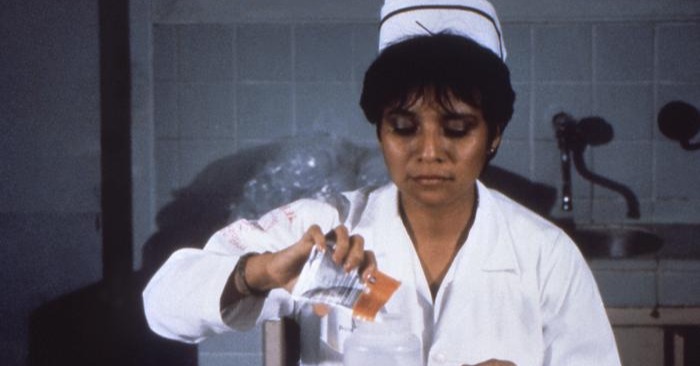
What Does a Family Nurse Practitioner Do?
Family nurse practitioners perform most of the same tasks as [...]

As more Americans rely on emergency care, emergency nurse practitioners (ENPs) will emerge as valuable unicorns in a pioneering category of advanced practice nursing.
If you’re already licensed as a registered nurse (RN) and your preferred work flow varies from steady to “stat,” you might consider becoming an ENP, an evolving type of nurse practitioner (NP).
“Although I have been an ENP for 17 years, the opportunities supporting and advancing ENP practice have only recently begun to gain momentum,” says Dr. Jennifer Wilbeck, an emergency nurse practitioner with a focus on acute care and families. “ENPs must be prepared to provide primary care and acute resuscitation, plus manage complex, unstable conditions in patients of all ages. Until recently, no academic programs offered this specialty training.”
While NPs have worked alongside emergency room physicians for more than five decades, the official title of ENP is relatively new; it was all but unheard of until the 1990s.
The specialty continues to grow, with more than 14,000 ENPs currently practicing, according to the American Association of Nurse Practitioners (AANP), the nation’s largest membership organization for NPs. New organizations continue to spring up; the American Academy of Emergency Nurse Practitioners (AAENP), which was established in 2014, now represents nearly 800 ENPs, according to the organization’s April, 2018 executive summary.
Because ENPs diagnose, treat, educate, and perform life-saving procedures, their roles will fill gaps in emergency medicine as significant physician shortages are expected by 2030. And as an ENP, your advocacy will help shape national health care policy.
Trained and licensed in the specific demands of emergency medicine, an ENP manages chaos while providing appropriate care in every imaginable setting—day and night. Typical salaries range between $103,368 and $123,748 depending on education, experience, and certifications, according to salary.com.
Advantages of becoming an emergency nurse practitioner include the excitement of constant change and the ability to save lives. Here’s where you will shine, not just as a nurse but as a healthcare advocate. In this pioneering field of ER nursing, you will be unique among this country’s 270,000 nurse practitioners (NPs). In some states, you may be able to practice without a physician’s supervision.
“The reliance on emergency care remains stronger than ever,” said Michael Gerardi, MD, FAAP, FACEP, president of the American College of Emergency Physicians (ACEP). “It’s the only place that’s open 24/7, and we never turn anyone away. Rather than trying to put a moat around us to keep people out, it’s time to recognize the incredible value of this model of medicine that people need.”
While one study suggests ED visits may be decreasing, with clients taking their less-critical health issues to urgent care centers and other non–emergency department acute care venues, the data are not conclusive, and the bottom line remains that emergency skills continue to be essential.
In 2016, the national emergency department (ED) visit rate was 45.8 visits per 100 persons, according to the National Ambulatory Medical Care Survey (NAMCS). Imagine waiting times in EDs and urgent care centers across America, especially with a projected shortage of up to 104,900 fewer physicians by 2030. The need for more skilled ED staff is certain to grow.
Downsides include stress, emotional exhaustion, and a constant grind that makes good footwear a critical wardrobe choice. Because of complications regarding insurance, many clients may still bypass other health care centers and go directly to the emergency room. The workload will be steady and challenging.
In advocating for patient rights, an ENP might grow especially weary, with fewer physician colleagues and less support while dealing with more patients. Be prepared to be on the receiving end of clients’ verbal abuse.
NPs often complain that physicians don’t understand their role in the emergency room. As a new type of NP, your role and scope of practice may futher perplex other medical professionals.
In other words, you are blazing trails. That ain’t easy.
To become an ENP through an accredited college or university, expect to pay between $800 to $1,000 per credit hour and to graduate in between four to seven semesters for a master’s. Application requirements include an RN license, a GPA of 3.0 or higher, and professional experience in an ED setting. After graduation, students can sit for the ENP certification exam (ENP-C) through the American Academy of Nurse Practitioners Certification Board (AANPCB).
Several graduate programs build upon the structure for family nurse practitioner (FNP) requirements. Others have developed specialized ENP tracks, with both in-person and online distance learning options.
There are two ways to become an ENP outside of academic courses:
__1. ENP-C
Available through the AANPCB since 2017, this three-hour certification exam features 150 questions on various topics, including nervous system disorders and medical screenings. After you pass, you can add ENP-C to your credentials.
To apply, you must first be an active RN licensed in the U.S., U.S. territories, or a Canadian province or territory. Second, you must be currently certified as an FNP. Third, you must have specific emergency room experience. Certification is good for five years.
__2. Emergency Nurse Practitioner-Board Certified (ENP-BC)
In 2013, the American Nurses Credentialing Center (ANCC), the largest nurse-credentialing organization in the world, developed the emergency nurse practitioner board certification (ENP-BC). You earn their certification through portfolio assessment, not by exam. First, you must have a valid license as an RN or APRN. Second, you must have practiced two years as a full-time NP with 2,000 advanced practice hours in emergency care. Third, you need 30 hours of continuing education in advanced emergency care. Finally, you need to complete two additional professional development categories that include academic credits, presentations, publication or research, preceptorship, or professional service.
Like the ENP-C, the ENP-BC is valid for five years.
Perplexed by all the medical acronyms? Here are eight quality networking sources to put in your back pocket as you review scholarships, jobs, and symposiums:
(Last Updated on February 26, 2024)
Questions or feedback? Email editor@noodle.com

Family nurse practitioners perform most of the same tasks as [...]

You'll find FNPs in primary care clinics, hospitals, urgent care [...]

Nurse practitioners (NPs) typically earn six figures, but NP salaries [...]

A Doctor of Nursing Practice (DNP) degree qualifies you for [...]

A travel nurse can easily earn a higher salary than [...]
Categorized as: Advanced Practice Nursing, Nurse Practitioner, Nursing & Healthcare